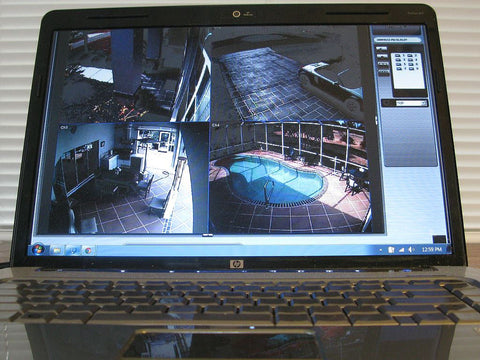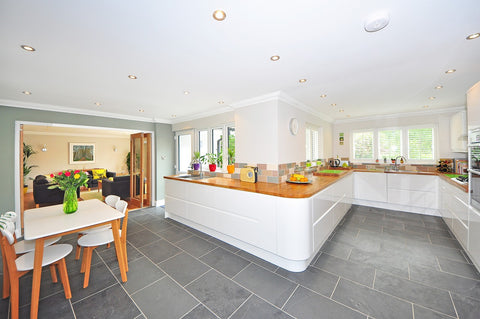
Home Automation With Alarm.com
08 Jul 2024
Qolsys IQ 4 - The Ultimate DIY Alarm System
11 Jun 2024
Alarm.com Video - Is it a good choice for you?
18 Jan 2024
19 Aug 2018
Thinking of getting a wireless security system, but you aren't sure if you should buy one for your home?
For almost half of homeowners in the United States, the right choice is pretty clear. In fact, a Parks Associates research study found that close to 50% of American households have a security system that connects wirelessly to sensors.
The rising popularity of wireless security systems is hardly surprising. A Market Research Future study attributes the growing demand for these systems to the increasing concerns over security threats such as burglary or unauthorized access to residential properties.
Apart from home security, using an alarm system without any wiring is more convenient than wired systems. A wireless system is easier to install because it doesn't require any drilling. This is why some homeowners choose to set up the system on their own.
Should you go for it or not? And if you decide to add a wireless security system to your home, how will you know which one is right for you? Here are the most important things to consider before you go ahead with the purchase.

Photo courtesy of Intel Free Press via Flickr, Creative Commons
A reliable security system helps you sleep well at night knowing that it's constantly monitoring your home. Specifically, this means fast and consistent connections via a wireless system's cellular service.
You have different options for home monitoring. For an additional cost, you can hire a professional service provider to do it for you round the clock. When a wireless alarm is triggered, emergency personnel will be sent to your home.
Alternatively, you can monitor the home security system yourself from your laptop or smartphone. The wireless system's cellular service enables you to connect your device to the system so that you can remotely lock your doors, switch off the lights, or adjust the thermostat.
For added peace of mind, you may opt to have both DIY and professional home monitoring.
When buying a wireless security system, look into getting more than just the usual package. Standard alarm systems include window and door sensors, motion detectors, security cameras, and the main control panel. But if you can afford extra features (freeze detectors, fire alarms, carbon monoxide detectors, etc.) to boost your home's safety, then get them by all means.
If you'll be shifting to a smart home, integrating home automation into your security system is the way to go. Rather than just going for the alarms, consider getting extra home security services to complete your smart home experience. For example, some wireless security cameras can connect to mobile devices, allowing users to monitor their home even while they're away.
For smart home systems, DSC and Honeywell wireless security systems are among the most recommended by security experts.
A notable addition to any home monitoring package is the Honeywell Total Connect 2.0 that provides convenient remote control and access capabilities through a user's online or cellular communicator.
One of the benefits of wireless security systems is their continuous operation, even during power outages, with power coming from a battery.
What to do if the battery runs out of juice but power hasn't been restored yet? It's good to have a wireless security system that can send you an alert via email or SMS when the battery power is already running low and needs replacement.

Photo courtesy of midascode via Pixabay
Size does matter in home security, as it determines the number of wireless devices you need.
If your home is a small apartment or condo, a small wireless system will suffice. But bigger homes need a higher level of security, with a wireless system that can handle a huge amount of data and monitoring from multiple sensors and alarms.
Assess your home to know how many sensors your wireless security system needs. This will save you money and time instead of adding sensors one by one later on.
Look for a wireless alarm system that can meet your specific requirement. The Honeywell Lynx Touch L5210, for example, can handle up to 64 wireless devices, which is enough for most homes. For a bigger home that needs more alarm zones, the Honeywell Lynx Touch L7000 fits the bill because it allows up to 80 sensors on this wireless security system.
Going wireless for your home security system is a great idea if your walls are already finished and you can’t fish wire through existing walls. Installing a wired system involves too much work, as you have to drill holes in your walls to connect the sensors to the main control panel. And when you're done with it, you'll have to cover the holes.
This is why installing a wireless alarm system is possible for DIYers with basic technical knowledge. If you'll go that route, check if a wireless system requires any special equipment before buying it. This way, your DIY installation project will be easier.

Photo courtesy of Luis_molinero via Freepik.com
Operating and troubleshooting a wireless home security system requires some technical and IT know-how. When shopping around for security systems, make sure to check the fine print. Does the home security system provider offer technical support? If the service isn't free, how much does consultation or assistance cost?
Are you on a tight budget? A wireless alarm system makes an affordable option. You can cut costs by doing the installation and home monitoring yourself.
If you prefer to get professional monitoring, you'll have to pay monthly service fees that range from $10 to $50. Also, if you'll have someone else install your home security system for you, be prepared to shell out hundreds of dollars for the installation fee.
With all these seven considerations in mind, you’ll be more confident in buying the best wireless security system for your home's safety.
08 Jul 2024
11 Jun 2024
18 Jan 2024